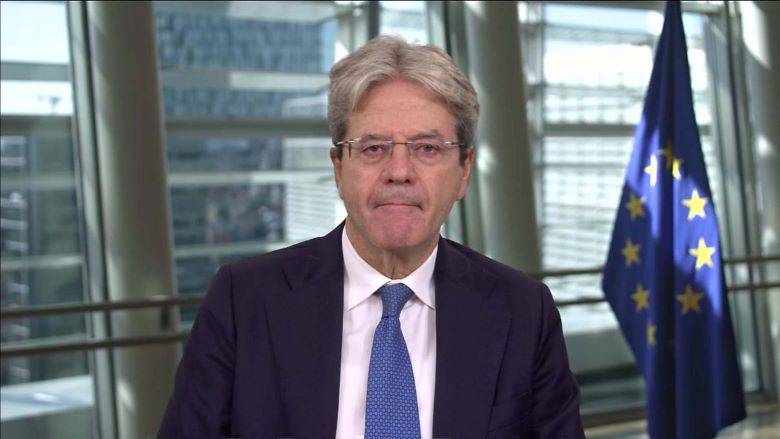Anamika Dey, editor
Brief news
- Economists in China advocate for a significant increase in government bonds to invest in human capital and stimulate economic growth.
- The real estate sector continues to struggle, with calls for more substantial financial support to restore trust among homebuyers.
- China’s economic growth forecast has been revised downwards, highlighting the need for effective fiscal policies and reforms to address ongoing challenges.
Detailed news
BEIJING — An increasing number of economists, even those within China, are advocating for an acceleration of economic development.
Liu Shijin, former deputy chairman of the Development Research Center of the State Council, China’s premier administrative body, asserted that China need to issue a minimum of 10 trillion yuan ($1.42 trillion) in ultra-long government bonds within the next one to two years to invest in human capital.
This is based on a CNBC translation of Liu’s comments in Mandarin, as reported by the financial data platform Wind Information.
His talk on Saturday at Renmin University’s China Macroeconomy Forum was entitled: “A Comprehensive Stimulus and Reform Strategy for Significant Expansion of Domestic Demand.”
Liu stated that China need to intensify its efforts to tackle the issues encountered by migrant workers in urban areas. He asserted that Beijing should refrain from adopting the same stimulus measures as developed countries, such as merely reducing interest rates, as China has not yet experienced that degree of economic deceleration.
Following a lackluster rebound last year from the Covid-19 outbreak, the world’s second-largest economy continues to face challenges due to a real estate downturn and subdued consumer confidence. Recent official data indicates a deceleration in industrial growth during the past two months. Exports have been an uncommon area of optimism.
Goldman Sachs recently revised its annual growth prediction for China, lowering it from 4.9% to 4.7%, in alignment with other institutions. The decrease is attributed to new data disclosures and the lagged effects of fiscal policy compared to the firm’s previous projections, according to analysts in a report dated September 15.
The Goldman analysts stated, “We believe the likelihood of China failing to achieve the ‘approximately 5%’ full-year GDP growth target is increasing, thereby heightening the necessity for additional demand-side easing measures.”
The Third Plenary Meeting of China’s senior leaders in July predominantly reaffirmed existing policies, while stating the nation will strive to reach its full-year objectives declared in March.
In late July, Beijing unveiled specific initiatives to enhance consumption, including incentives for trade-ins and upgrading of heavy equipment, like as elevators.
However, several firms indicated that the actions had not yet produced a significant effect. In August, retail sales increased by 2.1% compared to the previous year, marking one of the worst growth rates during the post-pandemic recovery.
Real estate stagnation
In the past two years, China has implemented various gradual measures to bolster the real estate sector, which once constituted almost a quarter of the GDP. However, the property decline continues, with associated investments decreasing by almost 10% over the initial eight months of the year.
“The significant issue is the property market,” stated Xu Gao, chief economist of Bank of China International, located in Beijing. He delivered a speech at an event last week hosted by the Center for China and Globalization, a Beijing-based think group.
Xu stated that while there is demand from Chinese customers, they are reluctant to purchase property due to concerns around the potential non-delivery of dwellings.
In China, apartments are generally sold prior to their completion. In late 2023, Nomura predicted that around 20 million pre-sold units remained incomplete. Homebuyers of a certain property informed CNBC earlier this year that they had been awaiting their homes for eight years.
Xu asserted that officials have to provide financial assistance to property owners to restore trust and stabilize the real estate market.
“The existing policy to stabilize the property market is evidently insufficient,” he stated, observing that the sector likely need support up to 3 trillion yuan, in contrast to the about 300 billion yuan declared thus far.
Diverse priorities
China’s foremost leaders have prioritized enhancing the nation’s competencies in sophisticated manufacturing and technology, particularly in response to escalating U.S. limitations on high-tech industries.
Gabriel Wildau, managing director at the consultancy firm Teneo, stated in a report earlier this month that the end-July Politburo meeting indicated a desire to intensify policy stimulus, but the extent of this escalation was marginal.
“Senior leaders seem satisfied to progress towards this year’s GDP growth objective of ‘approximately 5%,’ even if this is accomplished through a nominal growth of roughly 4% coupled with about 1% deflation,” he stated.
In an uncommon high-level public statement on deflation, former Governor of the People’s Bank of China, Yi Gang, remarked in early September that authorities “should concentrate on combating deflationary pressures” by “proactive fiscal policy and accommodative monetary policy.”
Wildau stated that “Yi was never part of the inner circle of senior Chinese economic policymakers, and his influence has diminished further since his retirement last year.”
Restrictions imposed by local government
China’s recent report on retail sales, industrial production, and fixed asset investment indicated growth that was slower than anticipated.
“Notwithstanding the increase in government bond financing, the growth of infrastructure investment has significantly decelerated, as local governments face stringent fiscal constraints,” stated Ting Lu, Chief China Economist at Nomura, in a note dated September 14.
“We contend that China’s economy may encounter a subsequent wave of disturbances,” he stated. “In light of these new shocks, traditional monetary policies have reached their limits; therefore, fiscal policies and reforms must assume primary importance.”
On Friday, the PBOC maintained one of its principal benchmark rates, notwithstanding anticipations that the U.S. Federal Reserve’s recent rate reduction might facilitate more monetary policy easing in China. Fiscal policy has thus far been more constrained.
“We believe that Beijing ought to allocate direct funding to stabilize the property market, as the housing crisis is the fundamental cause of these disturbances,” stated Nomura’s Lu. “Beijing must increase transfers from the central government to mitigate the fiscal strain on local governments prior to identifying long-term solutions.”
China’s GDP officially expanded by 5% in the first half of the year. Exports increased by an unexpected 8.7% in August compared to the previous year.
Zhu Guangyao, a former vice minister of finance, stated at last week’s Center for China and Globalization event, “In the short term, we must concentrate on successfully attaining this year’s growth objectives for 2024, approximately 5%.” “We remain confident in achieving that objective.”
In response to inquiries on China’s financial changes, he stated that the emphasis was on budgeting, regional fiscal reform, and the dynamics between central and local governments. Zhu observed that certain government revenues fell short of expectations.
He underscored that China’s Third Plenary Session concentrated on long-term objectives, which he asserted could be realized with yearly GDP growth of 4% to 5% over the next decade.
Source : CNBC News



